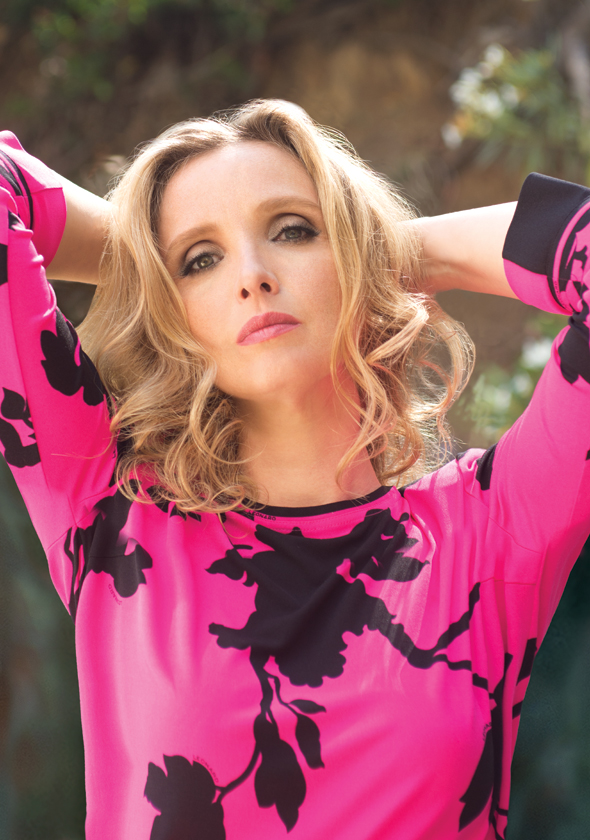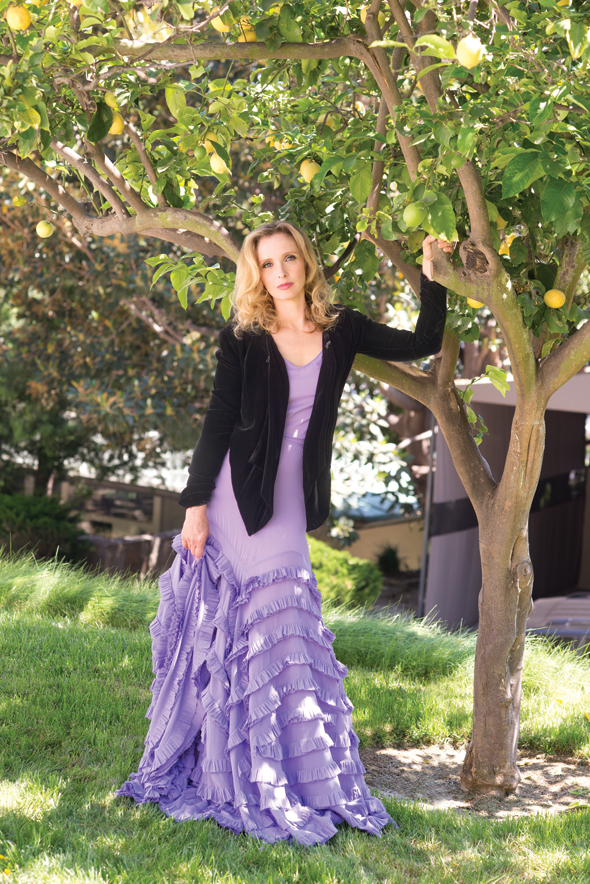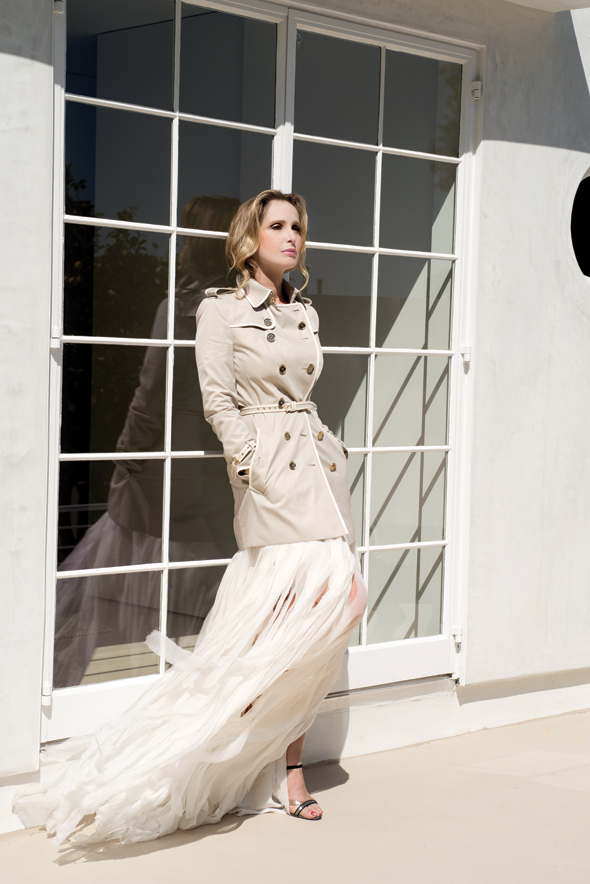
It may be a man’s world, but Julie Delpy has managed to make it her own. It has been nearly ten years since I first interviewed Delpy for this magazine, and in the span of this last decade, she has emerged as a multifaceted talent – an actress, writer and accomplished director who has rigorously defied expectation and blazed her own trail.
Raised by theater actors in Paris, Delpy was first discovered at age 14 by the great Jean-Luc Godard and has since served as muse, mentor and collaborator to some of cinema’s most respected names, from her work in Krzysztof Kieslowski’s acclaimed Three Colours Trilogy, to her own directorial efforts (including Two Days in Paris and Two Days in New York), as well as her writing and performing partnership with indie icon Richard Linklater.
Together with Linklater and co-writer and co-star Ethan Hawke, Delpy has created a series of emotionally honest, deeply intelligent romantic films – Before Sunrise, Before Sunset and most recently, Before Midnight. Capturing the arc of the long-running relationship between Celine (Delpy) and Jesse (Hawke), the films are full of brutal truth and heartbreaking intimacy, a narrative trilogy that has paralleled Delpy’s own personal evolution from ingénue to auteur.
Delpy spoke to us from Paris about what she has learned so far…

Let’s talk a bit about how your career has evolved since we last spoke. You’ve really been able to cross boundaries in terms of working as an actor, writer and director. And you’ve done it in your own way. You somehow make a statement for female empowerment, without being stridently feminist.
That’s because, while I may be a feminist, I love men. I always say I was raised by two feminists. My dad is the biggest feminist I’ve met. For him it’s about equality. For him feminism is not only about freeing women, but freeing men as well – the liberation from expectations and norms. Being raised like that made me the way I am now. Of course later in life, there were a lot of walls to climb and clichés to shatter and I realized quickly that not everyone is my dad. But when it comes to the creative process – the minds of men and women are equal. The creative mind of woman is the same as a man, there’s no arguing it. In that way I am connected to my male friends, I am just as close to them as I am with my female friends. That is why I’m able to write and work so closely with Richard and Ethan. If anything, in the room with them, I’m the boss. Richard is the director, yes, but they really listen closely to me because I am the only female voice in the room.
Well, the three of you listening to one another is why I think these films ring true with people. There’s a depth and complexity to these three films that wouldn’t be possible if it weren’t for the three of you working together.
Making them is a very different process from most other films. When Ethan and I are building a backstory for a role, in this case, we are able to reference two other films to find where we are as characters. That keeps the films honest in so many ways. It is a lot of work – it is all about the dialogue and the acting. There can be 20 pages of dialogue in a scene and we shoot these films in a very short amount of time. We shot Before Midnight in 15 days. So we need to be so in the moment – it is incredibly challenging. But that adds to an immediacy to the characters and to the film. You get a sense of real time and we don’t have time to get too melodramatic or over think scenes. And when we’re writing, we are working together in an open way, where we can make fun of each, and of ourselves. There’s a joke in the film where I talk about feminism and Ethan says sarcastically, ‘Oh, you must have suffered so much at the Sorbonne in the 1980s. What oppression you must have had to overcome!”. And yet, there are still boundaries to cross. Female directors for instance, there are not many of them. Even in our countries, where there is supposedly equality.

That said, tell us about your own process as a director. How much do you draw from your experiences in acting and writing?
A: It’s very simple – I write something I like. I make a shot list, create storyboards. The casting is very important to me, and I always want to work with the actors to be exactly the right person for each character, no matter how small the part. I’m also very precise about costume and props and production design, the authenticity of the spaces the characters inhabit. I’m pretty controlling in that sense. Even in the writing process I try to visualize as much as possible. I write the songs and music sometimes too. So I am very precise in my preparations, but then in the moment, on set – I try to be open to changing things…to do what works best for the film.
Is that something you’ve learned overall, to be open to change?
The overall things I’ve learned about this business is that I have always been more successful following my heart and my gut. It sounds corny, but it’s true. I have always found more success in following my heart than listening to what other people tell me I should do. You also have to be extremely tenacious. And I try to have integrity in what I do, while still being successful. I’ve never kissed the ass of anyone – I don’t know how to do that. So yes, that’s what I’ve learned so far. To try to have integrity and to be tenacious and listen to your own voice, your own heart.
Text by Jessica Hundley
Photography by Firooz Zahedi
Styling by Laura Duncan

